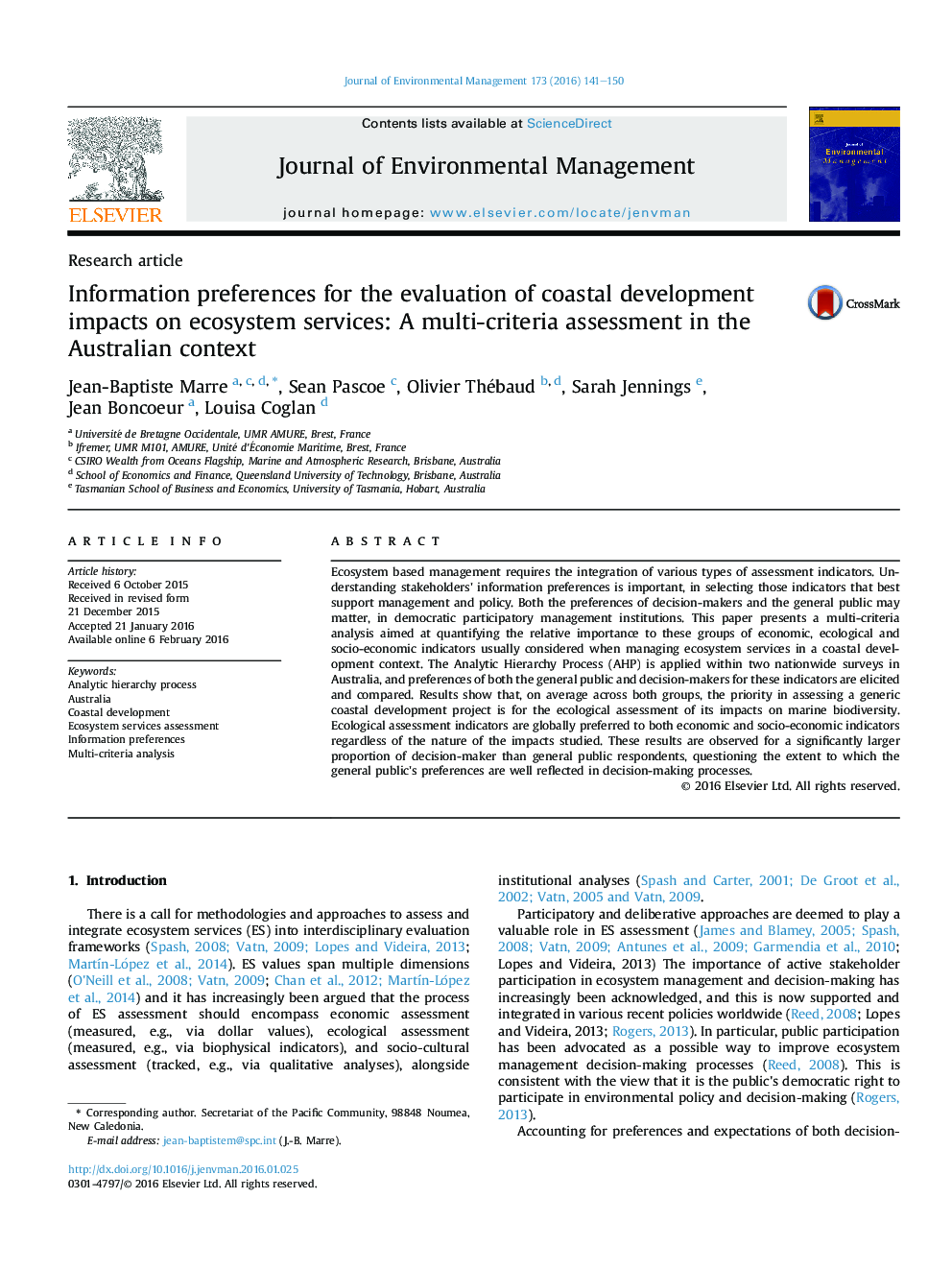| Article ID | Journal | Published Year | Pages | File Type |
|---|---|---|---|---|
| 1055382 | Journal of Environmental Management | 2016 | 10 Pages |
•We examine information preferences for ecosystem services assessment indicators.•We use the analytic hierarchy process in the context of coastal development.•We compute relative weights from decision-makers and the general public in Australia.•Ecological assessment indicators are preferred to economic or socio-economic ones.•The representation of general public's preferences by decision-makers is questioned.
Ecosystem based management requires the integration of various types of assessment indicators. Understanding stakeholders' information preferences is important, in selecting those indicators that best support management and policy. Both the preferences of decision-makers and the general public may matter, in democratic participatory management institutions. This paper presents a multi-criteria analysis aimed at quantifying the relative importance to these groups of economic, ecological and socio-economic indicators usually considered when managing ecosystem services in a coastal development context. The Analytic Hierarchy Process (AHP) is applied within two nationwide surveys in Australia, and preferences of both the general public and decision-makers for these indicators are elicited and compared. Results show that, on average across both groups, the priority in assessing a generic coastal development project is for the ecological assessment of its impacts on marine biodiversity. Ecological assessment indicators are globally preferred to both economic and socio-economic indicators regardless of the nature of the impacts studied. These results are observed for a significantly larger proportion of decision-maker than general public respondents, questioning the extent to which the general public's preferences are well reflected in decision-making processes.
